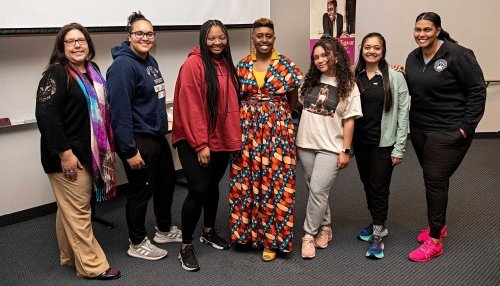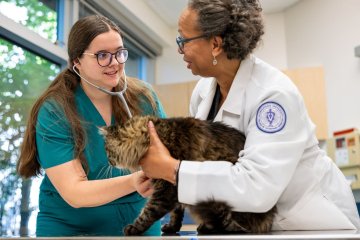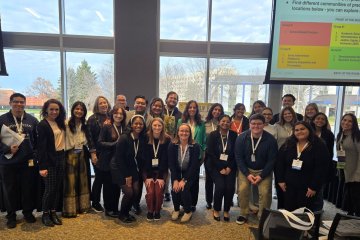Promoting Equity in Healthcare Through Black History Month Celebrations
Midwestern University celebrated BHM by hosting events on both campuses.

Cross-campus events honor Black History Month.
During the month of February, both the Midwestern University Glendale and Downers Grove Campuses hosted several events to celebrate the history, lives, and culture of Black Americans. These activities provide faculty, staff, students, and community members from different backgrounds with opportunities to come together and learn more about improving equity within healthcare.
On the Downers Grove Campus, the Black Student Alliance set up an I Have A Dream posterboard. People were encouraged to anonymously write down their own dreams to improve health equity and foster an inclusive environment, and post them on the board for everyone to see. One student wrote that their dream is:
"To decrease medical disparity by increasing diversity in the medical field."
Student groups on the Glendale Campus continued the activities by collaborating with the Office of Multicultural Affairs and Community Outreach, as well as Student Services. Some of the events included Black History Trivia and a community outreach event with Project Humanities Outreach. Students came together to assist local un-housed individuals to obtain clothing and other necessities. Additionally, local marriage and family therapist Ms. Ashlea Taylor, M.A.S.-LMFT, came to campus and presented on Generational Trauma and Post-Traumatic Slave Syndrome. Ms. Taylor broke down the importance of understanding familial dysfunction stemming from past generations having been enslaved, and how healthcare professionals can provide informed care.
“We have the ability to speak life and death into each other! Be intentional with your words and create functional generational patterns in all the environments you find yourself in. As humans, we are meant to connect, but we often have not studied our family dysfunctional generational patterns, and we are predisposed to repeat them if we do not recognize and understand them. Moreover, these patterns create emotional and physical diseases in our bodies for generations. Acknowledge your family's past, acknowledge who you are today. Recognize who you want to be in all environments in your life and make a functional change if needed. When you step into a room as your authentic functional self, it lends space for you to be open and humble to provide the culturally competent care that your patient deserves because you aren't worried about where you stand in the room,” said Ms. Taylor.
Learn more about Midwestern University’s commitment to Multicultural Affairs and Community Outreach.



